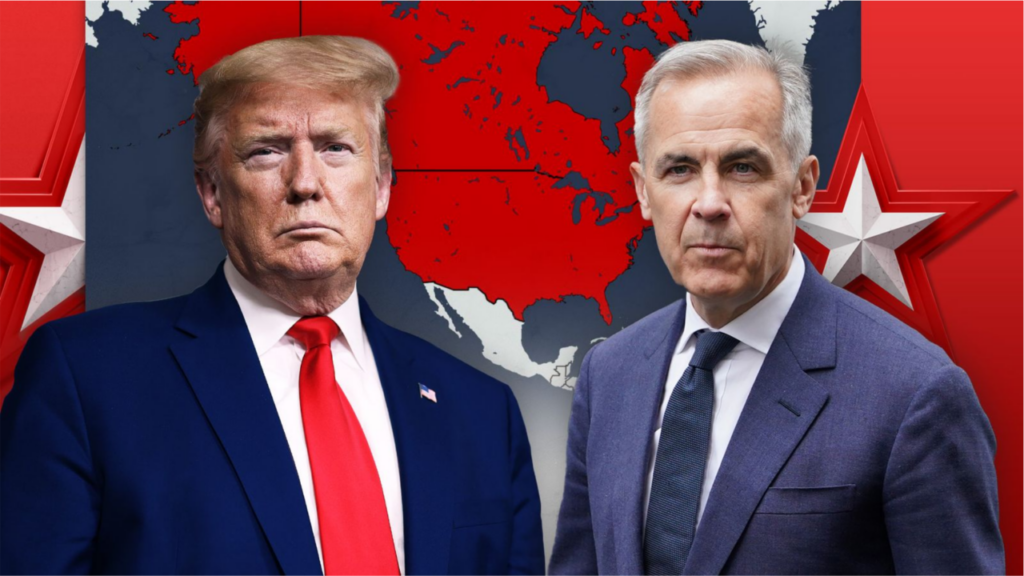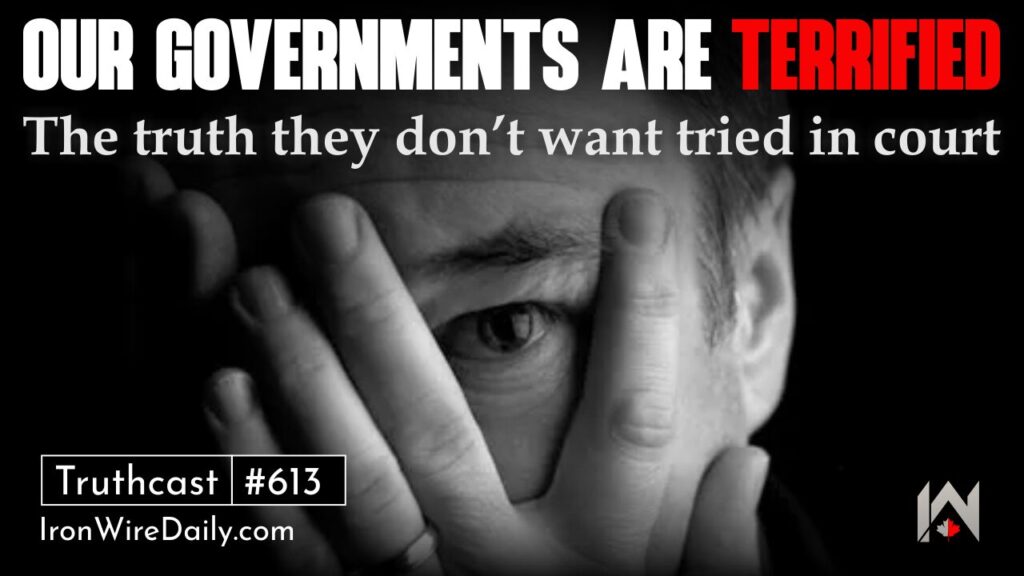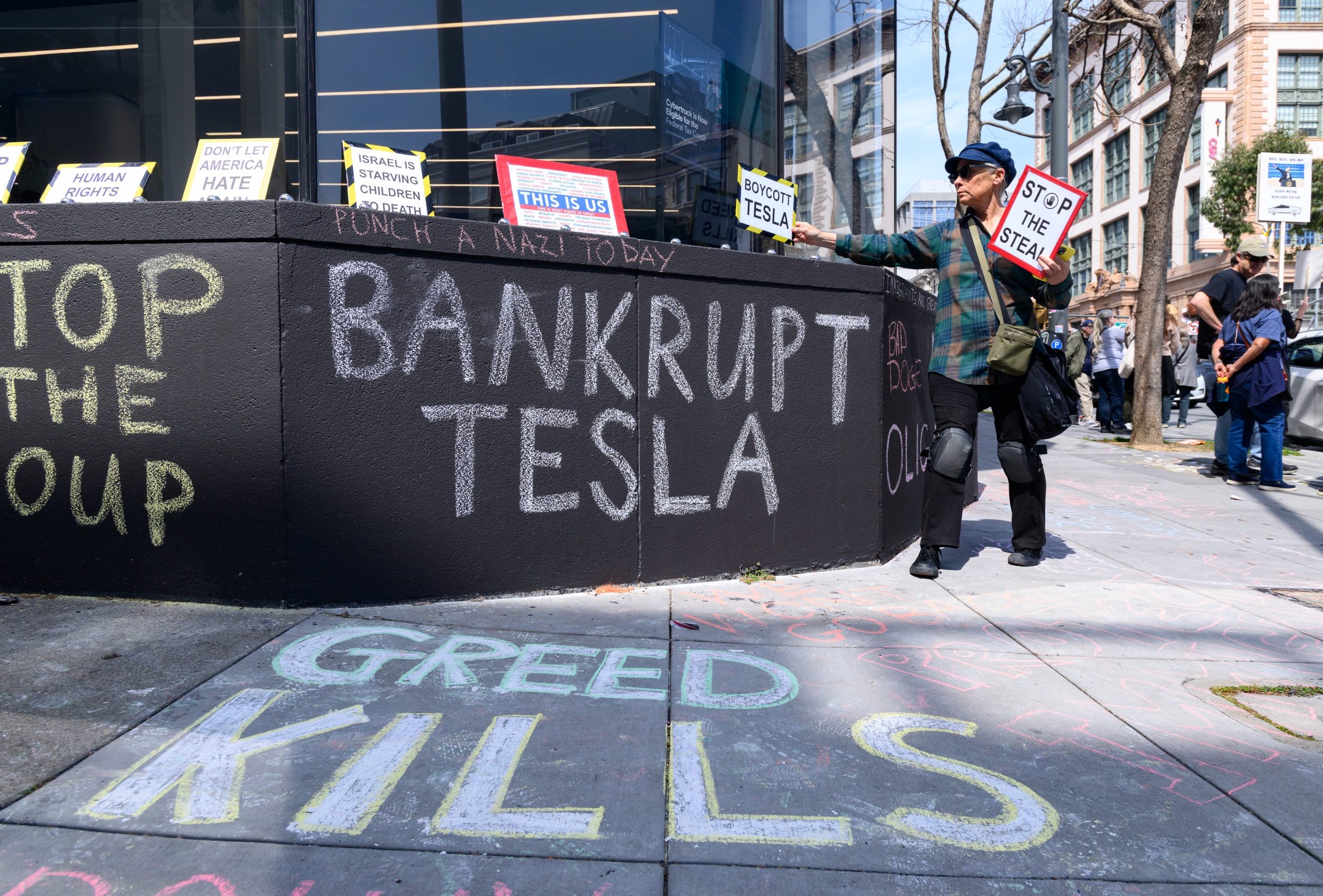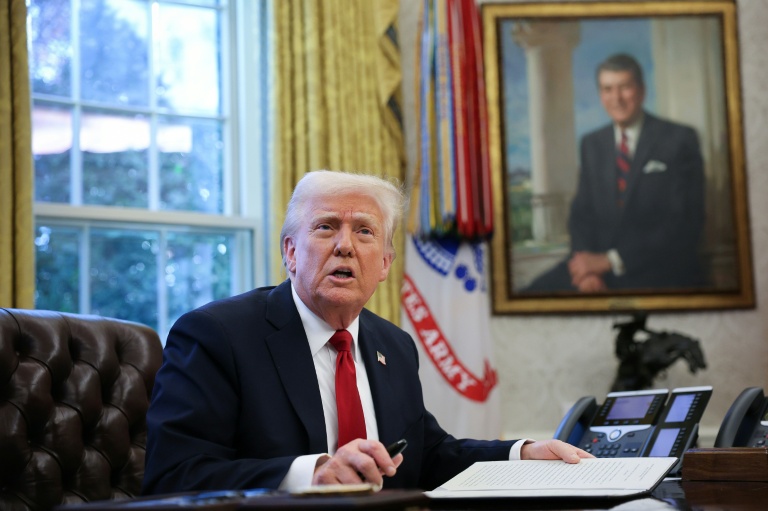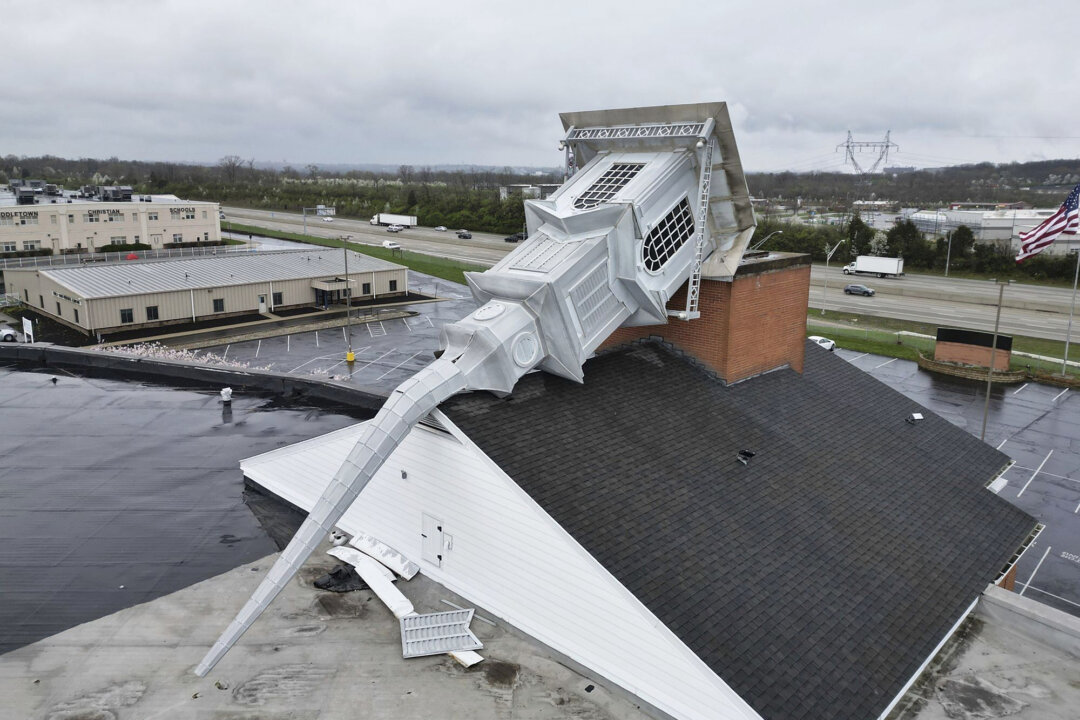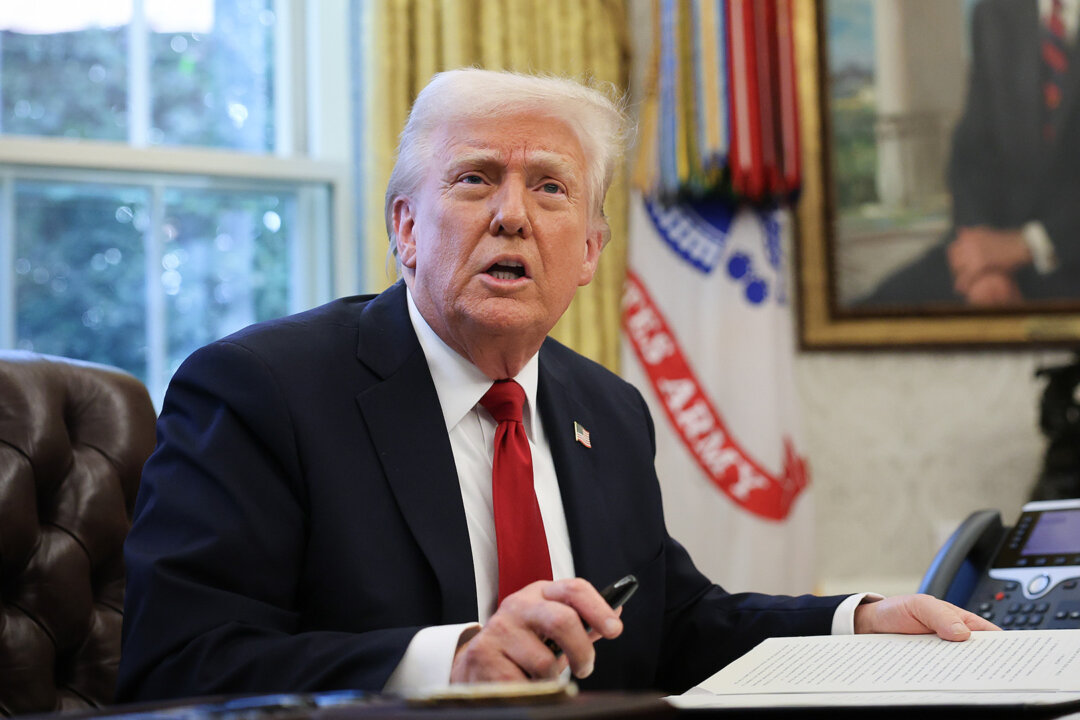Deep State Union Gears Up to Sue After Trump Weakens Its Ability to Undermine National Security
The American Federation of Government Employees is the tip of the deep state spear, taking President Trump to court as he tries to rein in the federal bureaucracy.
AFGE promised yet another lawsuit Thursday, shortly after Trump signed an executive order removing the privilege of collective bargaining from a host of federal employees.
“AFGE is preparing immediate legal action and will fight relentlessly to protect our rights, our members, and all working Americans from these unprecedented attacks,” AFGE National President Everett Kelley said in a statement. He framed the executive order as “a disgraceful and retaliatory attack on the rights of hundreds of thousands of patriotic American civil servants … simply because they are members of a union that stands up to his harmful policies.”
Sorry, AFGE, but not everything is about you.
Trump’s order does not mention the union. Rather, it merely strips the privilege of collective bargaining from federal agencies that Trump has determined “to have as a primary function intelligence, counterintelligence, investigative, or national security work.”
Trump has the right to make such a determination according to 5 USC 7103. The president extended this determination to numerous federal agencies and subdivisions, including the Departments of Agriculture, Defense, Health and Human Services, Justice, State, and Veterans Affairs.
The Office of Personnel Management released guidance to those agencies, saying they are “no longer required to collectively bargain with federal unions.”
According to Government Executive, the order will remove collective bargaining privileges from roughly 67% of the entire federal workforce and for 75% of workers already in a union.
No Effect on Unionization Rights
While AFGE and its allies in the legacy media may lament the loss of collective bargaining privileges, Rachel Grezsler, a senior research fellow at The Heritage Foundation, explained that federal workers enjoy many other labor protections that this order does not affect.
“He did not take away the right of any federal employee to belong to a union,” she said of Trump. He merely stripped employees’ ability “to negotiate collective bargaining agreements in ways that tie the hands of management, in ways most Americans would say harm the agency’s ability to get things done.”
Federal workers still have different venues in which they can appeal adverse employment decisions, Grezsler noted. They can rely upon the Whistleblower Protection Act, the Merit Systems Protection Board, and the Equal Employment Opportunity Commission.
“The law and regulations already provide enormous protections for federal workers,” she explained. “It’s just that the union was one more step of protection. That union can still be there and still provide advice when they go to MSPB, they just can’t bargain over things that, I think, ordinary Americans would say, ‘This is silly. Why are they bargaining over this and why are we paying them to bargain over this instead of doing their jobs?’”
What Do the Unions Bargain For?
Federal law prohibits public-sector unions from engaging in strikes and from bargaining over pay and benefits (though most Americans would interpret perks like working from home as a benefit), but only conditions of employment. That allows unions to bargain over federal workplace minutiae.
Rep. Virginia Foxx, N.C., noted that federal workers have used collective bargaining to demand “the addition of 14 inches in the height of cubicle desk panels; designated smoking areas on an otherwise tobacco-free campus; and federal employees’ right to wear shorts, sweatpants, and spandex at work.”
Worse, federal workers can receive taxpayer funds for hours doing work for the union, rather than their actual jobs. The federal government once kept an accounting of this pay, termed “official time,” but the Office of Personnel Management stopped publishing reports on it under President Joe Biden.
Grezsler said the union collective bargaining contributes to a poor work culture in the federal government. She pointed to results from the annual federal employees survey, which asked workers whether “poor performers who cannot or will not improve are dealt with.”
In 2016, only 29% of federal employees agreed that poor performers face consequences. While that improved alongside accountability reforms under the first Trump administration, Biden-era responses show that nearly 60% of federal employees said poor performers faced no consequences.
Grezsler said the Office of Personnel Management stopped asking the poor performance question early into Biden’s term.
“There’s no accountability, basically,” she added.
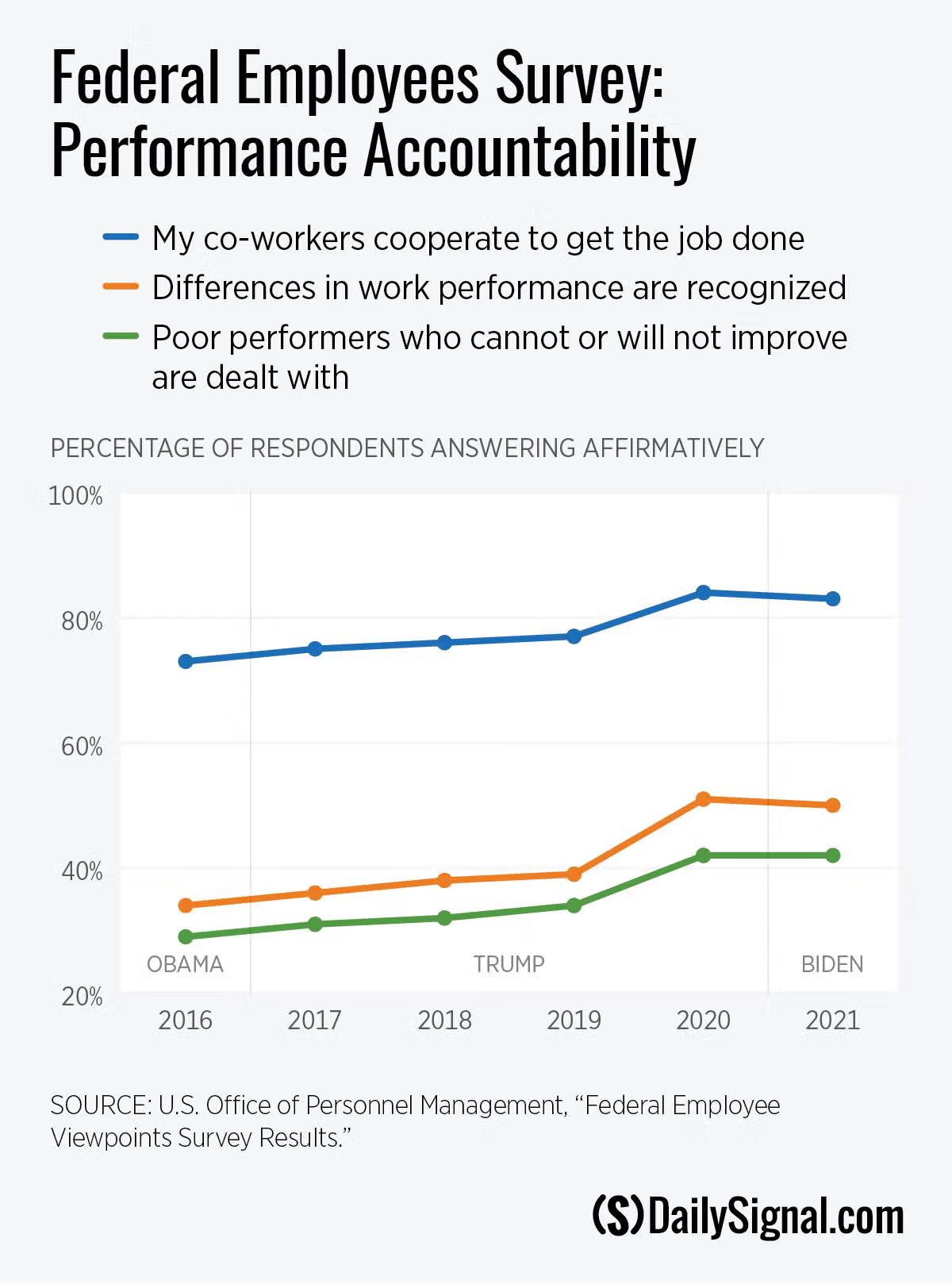
Even President Franklin Delano Roosevelt, who supercharged the administrative state through his New Deal programs, opposed unions in the federal government.
“The very nature and purposes of government make it impossible for administrative officials to represent fully or to bind the employer in mutual discussions with government employee organizations,” Roosevelt wrote in a 1937 letter. “The employer is the whole people, who speak by means of laws enacted by their representatives in Congress.”
Any negotiation with a public employee union would constitute a loss of the people’s authority, the founder of the New Deal said.
While the Civil Service Reform Act of 1978 prevents some of the worst union excesses, public-sector unions demonstrated Roosevelt’s point in the lead-up to President Trump’s inauguration this year. Federal agencies altered collective bargaining agreements with unions, enshrining work-from-home policies into the agreements ahead of Trump, who had promised to force employees to work in the office.
America’s largest unions aren’t just left-leaning, they directly contribute funds to Democrats—and they funnel cash to the left-wing activist groups that staffed and advised the Biden administration (the influence campaign I describe in my book “The Woketopus: The Dark Money Cabal Manipulating the Federal Government”).
AFGE has filed lawsuits to halt DOGE access to federal data, to block policies making it easier to fire federal bureaucrats, and to reinstate fired federal workers.
The federal union will likely follow through on its threat, and the Trump administration may ask judges to sanction the lawyers who continue to file these lawsuits.

